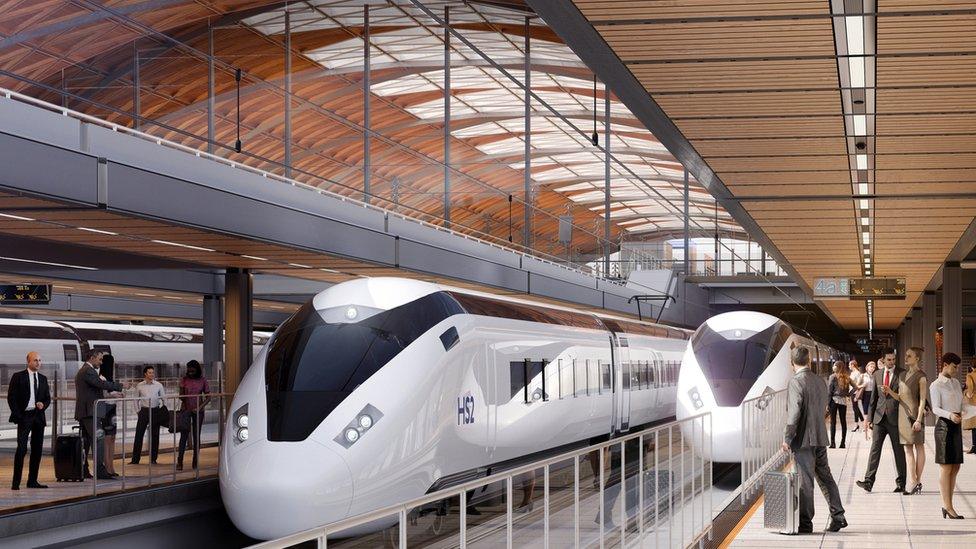HS2 protesters spending coronavirus lockdown in trees
- Published
HS2: Protester living in tree "willing to be arrested"
As the nation is told to stay at home, defiant protesters against HS2 have chosen to self-isolate at makeshift camps in under-threat forests. Dozens are living in ancient woodlands during lockdown - spending the days up trees - where they say they have been isolating as though they are a single, large household.
The camp at Crackley Woods, near Kenilworth, Warwickshire, consists of a roundhouse built from hay bales and covered in tarpaulin, a field kitchen, about 20 small tents and a handful of camper-vans. The landowner gave the protesters permission to set up here before lockdown, and they have continued to do so over the past six weeks.
Supporters bring food and care packages and leave them at the edge of the camp. It was originally made up of locals from the Stop HS2 campaign group, but they have been joined by people from other organisations including Extinction Rebellion.
It is possible to walk along a public bridleway which brings you through the woods to the edge of the camp, and to the fences which have been erected by HS2 contractors to keep the protesters out. On one side are mobile CCTV camera units called Armadillos, as well as HS2 staff wearing PPE who are patrolling the boundary to check for incursions.
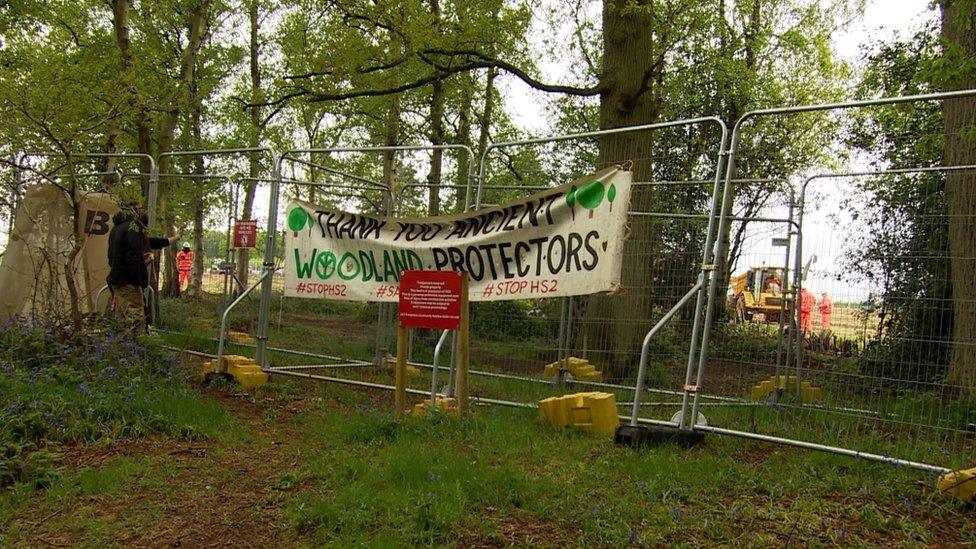
The campaign to stop HS2 is continuing amid the coronavirus pandemic
On the other side, the protesters have built tree-houses and a gantry so they can see what's happening over the fence. Nearly all of the trees that should have been felled have been taken down over the past few weeks. The campaigners took to the treetops to try to stop the work going ahead, and a number were arrested by enforcement officers.
One, known as Quercus - the Latin for oak - is a former tree surgeon. He spends most of the day in a tree-house 30ft up. He told me when he saw the trees coming down he was "overcome with grief" and he was willing to be arrested again to try to stop the trees being felled.
He has been at the camp for several weeks and says he feels it is important to continue the fight as the country remains in lockdown.
"Even before we had the pandemic and lockdown, there were a vast minority of people that were able to come out and do protests like this - certainly far fewer people now," he said.
"People's democratic right to protest and have their say has been taken away at this time."
Another protest group, called HS2 Rebellion says it has blockaded more than 20 other sites around the UK from London to Crackley Woods.
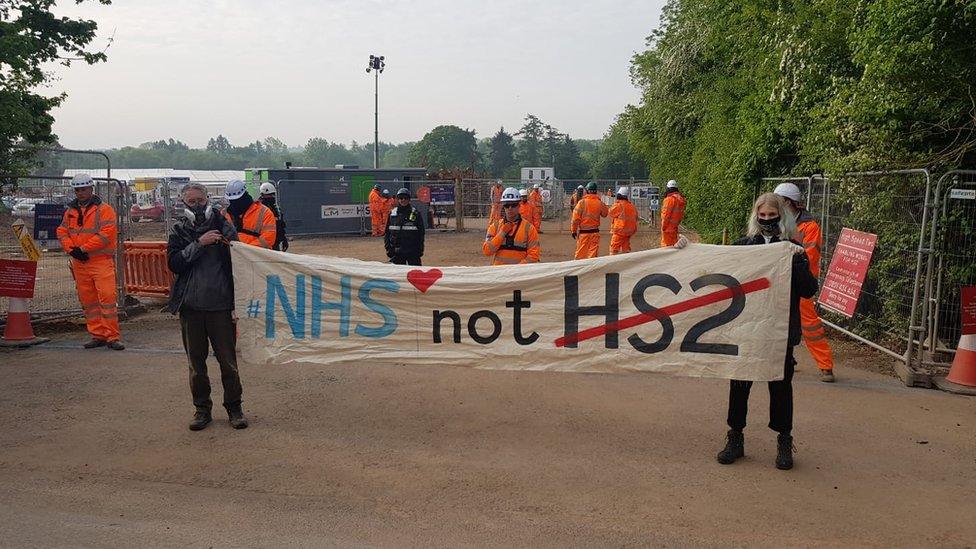
HS2 Rebellion says it has blockaded more than 20 other sites around the UK
One member said in an online video: "Our nurses and doctors are without PPE, yet these workers can continue because the Government deems them key workers.
"Our real key essential workers are without PPE because of projects like this."
A statement said the group "wish to emphasise the public resistance to HS2'S destruction of our ancient woodland and wildlife habitats, and HS2'S failure to stop construction works at multiple sites breaching HSE Covid guidelines and exposing their workers, protesters, families and communities to unnecessary risk during a national health crisis".
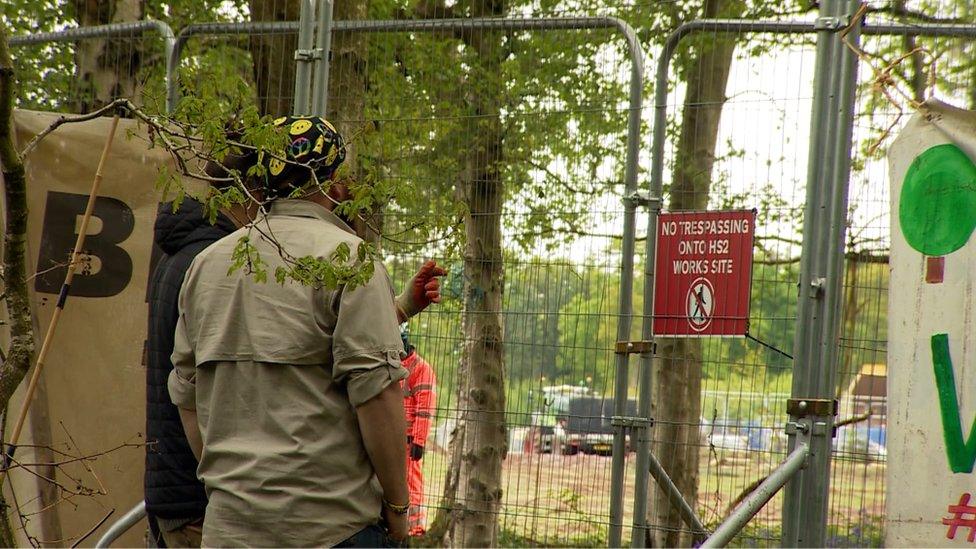
Several camps have been set up in forests along the planned HS2 line
Campaigners claim 108 ancient woodlands along the route, which has been given the go ahead by the government, are under threat. HS2 said that was an exaggeration.
Paul Faulkner, chief executive of Greater Birmingham Chambers of Commerce, is a big supporter of the project. He believes it has very strong green credentials and says a tiny fraction of the country's ancient woodland will be felled.
"HS2 is aiming to be the world's most sustainable high-speed railway. It's got a whole host of pro-environmental measures that it's introducing, and that's before we get on to the massive economic benefits that HS2 is going to bring."
Stop HS2 has argued the economic benefits have never been proven and they believe the money would be better spent after lockdown ends.
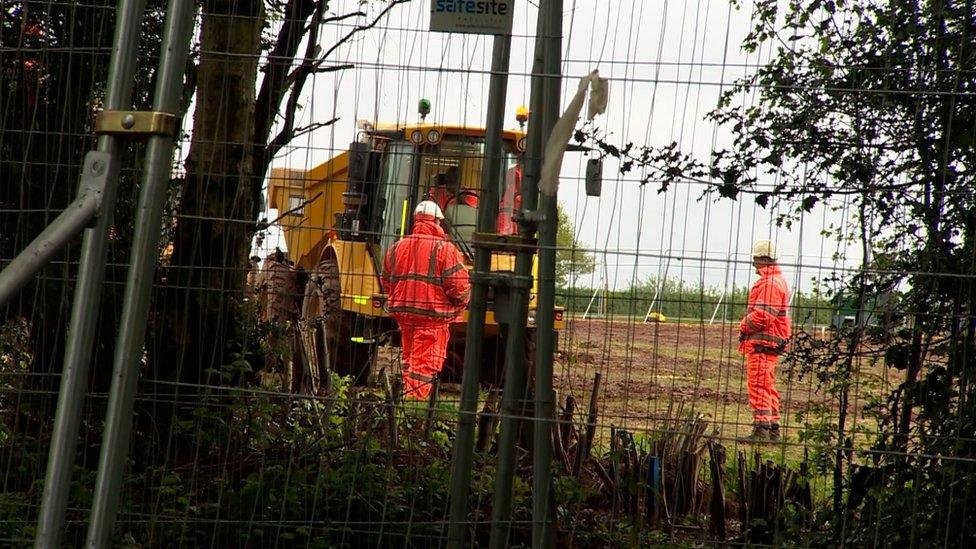
Work on the high-speed line is continuing after the government gave the go ahead
Chief executive of HS2 Mark Thurston said 11,000 people from 2,000 companies were already working on the project and he expected that to double over the next two years.
"We see HS2 now as having an important role in getting the economy back on its feet," he said.
The Department for Transport said in a statement: "While the government's top priority is rightly to combat the spread of coronavirus, we should not delay work on our long-term plan to level up the country."
Matt Bishop grew up in Coventry and visited Crackley Woods when he was a child. He has become one of the camp's leaders. He still hopes the project - which has been given the green light by the government - can be halted.
"We need to show the government that you cannot just draw a line across the middle of the countryside. That's just not acceptable," he said.
The first train is not expected to roll into the new Birmingham Curzon Street station until 2029.
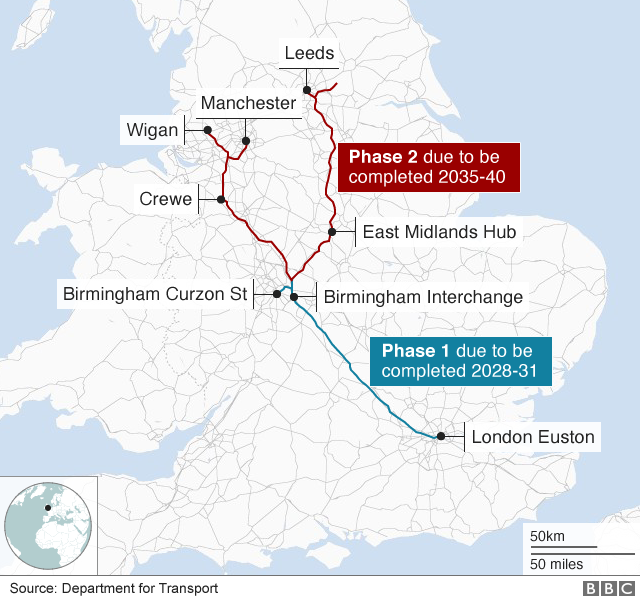
Once built, London to Birmingham travel times will be cut from one hour, 21 minutes to 52 minutes, according to the Department for Transport
- Published15 April 2020
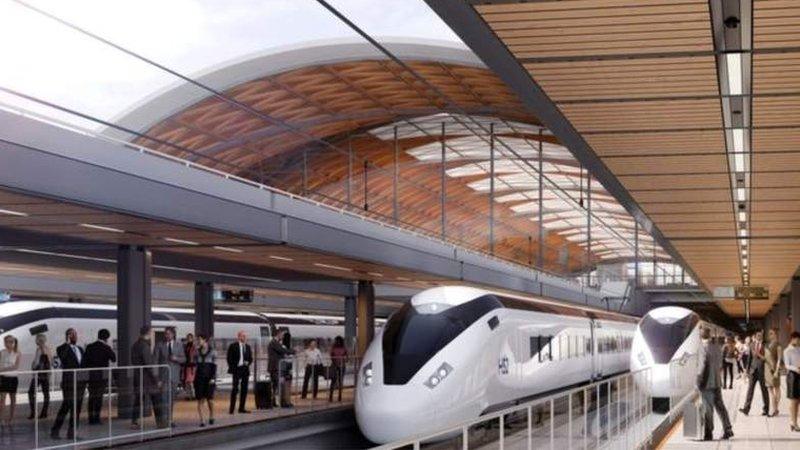
- Published3 March 2020
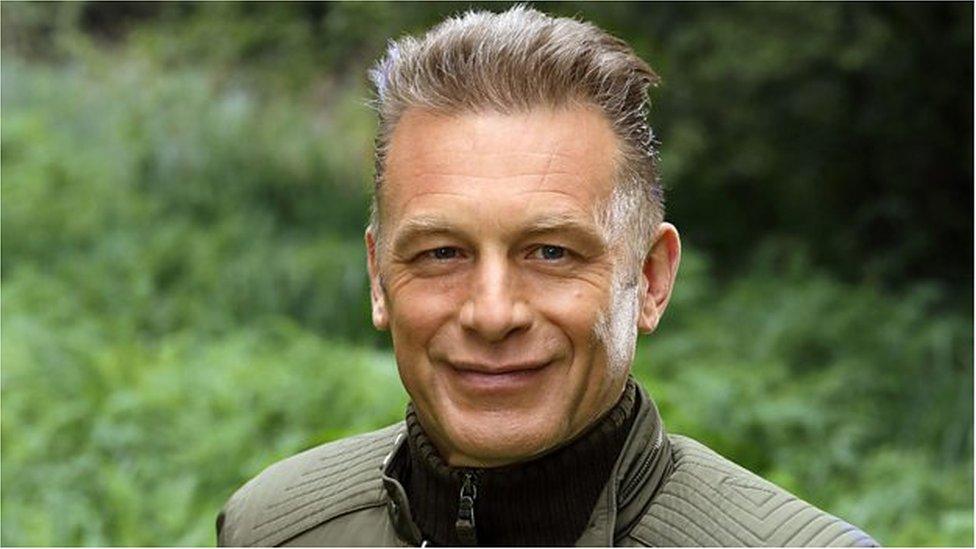
- Published11 February 2020
